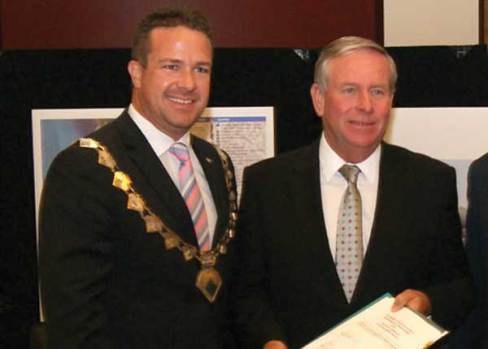By Angela Dorizas
Western Australian councils will form regional transitional bodies to facilitate the next phase of local government reform.
Local Government Minister John Castrilli introduced the new ‘regional transition groups’ after receiving an interim report from the Local Government Reform Steering Committee.
Nine councils advised the steering committee that they were prepared to merge into three new local government bodies. A further 54 councils indicated support for amalgamations.
Mr Castrilli said the transition groups would allow councils to “harmonise” a range of core functions, such as strategic and community planning, infrastructure and asset management.
The transition groups will be bound by a formal, no-opt out agreement.
Mr Castrilli said a small number of councils advised the steering committee that amalgamations were not necessary due to remoteness and size.
In response, ‘regional collaborative groups’ were introduced to allow those councils to “work together before deciding their future”.
The collaborative groups will be underpinned by a formal agreement and will be required to perform similar functions as the transitional groups.
Councils opposed to voluntary mergers will come under increasing pressure to amalgamate.
Mr Castrilli said he expected more mergers to be announced in the coming months as departmental discussions with local government continue.
“I believe more metropolitan local governments can engage in robust structural reform and re-engage with those next March,” Mr Castrilli said.
WA Local Government Association (WALGA) president Bill Mitchell said he continued to support the reform process but said it was critical that amalgamations remain voluntary.
“As long as the reform process remains voluntary it will continue to be supported by WALGA and the majority of the local government sector,” he said.
Cr Mitchell warned councils that while the transitional bodies would be voluntary, a clause in the agreement would prevent councils from opting out of the group when later found not to be suitable.
He said it was “encouraging” that the steering committee’s interim report included core concepts of WALGA’s Systemic Sustainability Study (SSS).
“The Association invested considerable time and resources into researching, analysing and consulting in the production of the SSS report which had the overwhelming support of the sector,” Cr Mitchell said.
“It is sensible that the key elements of such a volume of work and contribution by local government itself is recognised and supported by the State Government’s reform process.”
The steering committee’s final report on local government reform is due March 2010.
Comment below to have your say on this story.
If you have a news story or tip-off, get in touch at editorial@governmentnews.com.au.
Sign up to the Government News newsletter

